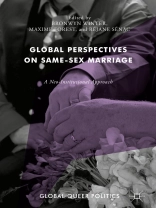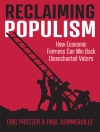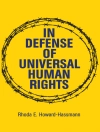This book provides a comparative, neo-institutionalist approach to the different factors impacting state adoption of—or refusal to adopt—same-sex marriage laws. The now twenty-one countries where lesbians and gay men can legally marry include recent or longstanding democracies, republics and parliamentary monarchies, and unitary and federal states. They all reflect different positions with respect to religion and the cultural foundations of the nation. Countries opposed to such legalization, and those having taken measures in recent years to legally reinforce the heterosexual fundaments of marriage, present a similar diversity. This diversity, in a globalized context where the idea of same-sex marriage has become integral to claims for LGBTI equality and indeed LGBTI human rights, gives rise to the following question: which factors contribute to institutionalizing same-sex marriage?
The analytical framework used for exploring these factors in this book is neo-institutionalism. Through three neo-institutionalist lenses—historical, sociological and discursive—contributors investigate two aspects of the processes of adoption or opposition of equal recognition of same-sex partnerships. Firstly, they reveal how claims by LGBTIQ movements are being framed politically and brought to parliamentary politics. Secondly, they explore the ways in which same-sex marriage becomes institutionalized (or resisted) through legal and societal norms and practices. Although it adopts neo-institutionalism as its main theoretical framework, the book incorporates a broad range of perspectives, including scholarship on social movements, LGBTI rights, heterosexuality and social norms, and gender and politics.
Table of Content
1. Institutionalizing Same-Sex Marriage in Argentina and Mexico: The Role of Federalism.- 2. A Tale of Two Congresses: Sex, Institutions and Evangelicals in Brazil and Chile.- 3. Historical Institutionalism and Same-Sex Marriage: A Comparative Analysis of the U.S. And Canada.- 4. Understanding Same-Sex Marriage Debates in Malawi and South Africa.- 5. Same-Sex Marriage in France and Spain: Comparing Resistance in a Centralized Secular Republic and the Dynamics of Change in A ‘Quasi-Federal’ Constitutional Monarchy.- 6. Europeanizing vs. Nationalizing the Issue of Same-Sex Marriage in Central Europe: A Comparative Analysis of Framing Processes in Croatia, Hungary, Slovakia and Slovenia.- 7. Preserving the Social Fabric: Debating Family, Equality, and Polity in the United Kingdom, the Republic of Ireland and Australia.- 8. The Globalization of LGBT Identity and Same-Sex Marriage as a Catalyst of Neo-Institutional Values: Singapore and Indonesia in Focus.- 9. Pathways to Legalizing Same-Sex Marriage in China and Taiwan: Globalization And ‘Chinese Values’.
About the author
Bronwyn Winter is Deputy Director of the European Studies program at the University of Sydney, Australia, where she also contributes to the International and Global Studies program.
Maxime Forest is Researcher, Senior Lecturer, and Scientific Coordinator at the EU-funded EGERA project (Effective Gender Equality in Research and the Academia, Framework Project 7) at Sciences Po Paris, France.
Réjane Sénac is a National Centre for Scientific Research (CNRS) Tenured Researcher at the Centre for Political Research (CEVIPOF) at Sciences Po Paris, France.












